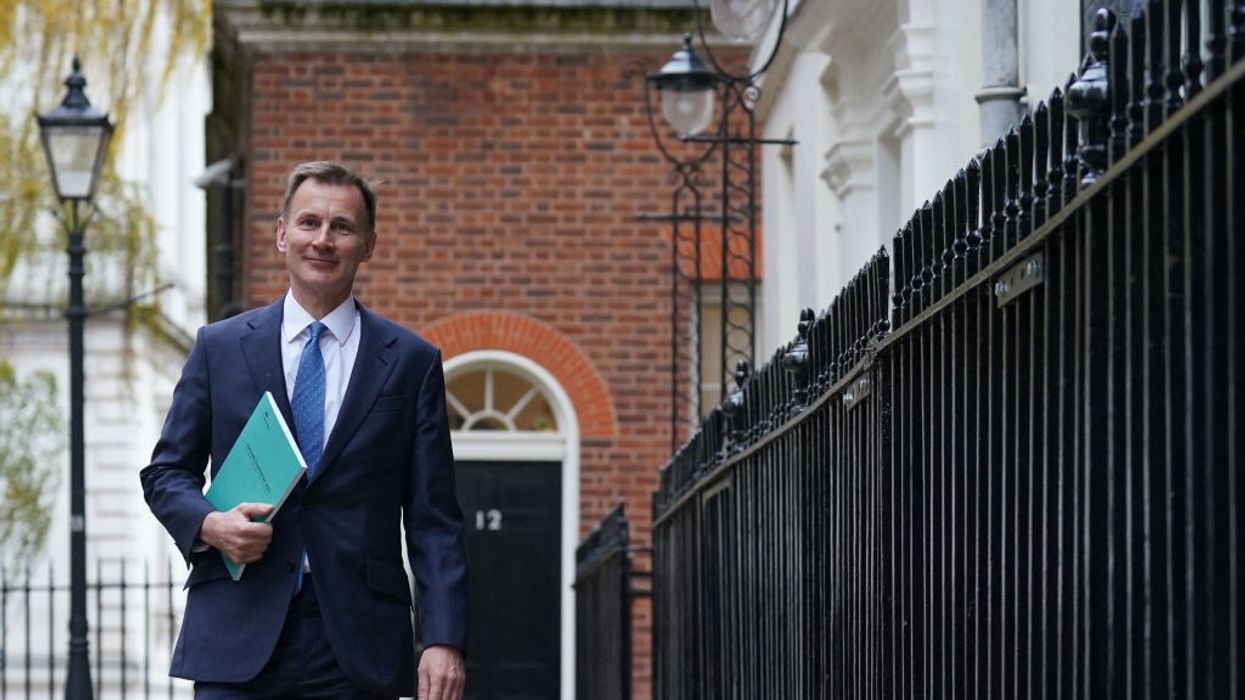CHANCELLOR of the exchequer Jeremy Hunt announced on Wednesday (22) a bigger-than-expected cut in social security contributions and made incentives for business investment permanent in a bid to speed up the country's sluggish economy.
Hunt, who is seeking to boost the fortunes of prime ninister Rishi Sunak's struggling Conservative Party ahead of an election expected next year, announced big increases in welfare payments and the state pension.
He said the government was nevertheless set to meet its targets for the public finances, citing forecasts from the Office for Budget Responsibility.
"After a global pandemic and energy crisis, we have taken difficult decisions to put our economy back on track," Hunt said at the start of his speech.
"Rather than a recession, the economy has grown. Rather than falling as predicted, real incomes have risen. Our plan for the British economy is working. But the work is not done."
To cheers from Conservative MPs, Hunt announced he was cutting the rate of contributions to the National Insurance social security system for employees by two percentage points to 10 per cent, along with a smaller cut for self-employed workers.
He said measures in his plan announced on Wednesday would increase business investment by around £20 billion a year within a decade, or nearly one per cent of GDP.
"That is the biggest ever boost for business investment in modern times," Hunt said.
In the short term, at least, Britain's economy looks stuck in a slow gear.
Gross domestic product is expected to grow by 0.7 per cent in 2024, much weaker than the expansion of 1.8 per cent forecast in the OBR's previous outlook, published in March.
The OBR also said economic output would grow by 1.4 per cent in 2025 and by 1.9 per cent in 2026 - weaker than its previous forecasts of 2.5 per cent and 2.1 per cent respectively.
Britain's economy has struggled with high inflation and the new OBR forecasts showed the consumer price index was expected to grow by 2.8 per cent next year, up from the March forecast of 0.9 per cent.
Sunak this week promised "responsible" tax cuts, mindful of last year's "mini-budget" turmoil in financial markets triggered by his predecessor Liz Truss's plans for much bigger tax cuts.
This time last year, the newly installed Sunak and Hunt raised taxes sharply to quell the bond market mayhem, and the current parliament is seen on track to have introduced the biggest tax increases of any UK legislature since World War Two.
Britain's economy has been burdened by the highest inflation rate among its rich country peers although the pace of price growth has slowed from more than 11 per cent just over a year ago to 4.6 per cent in October.
The budget watchdog's new forecasts pointed to a slightly slower pace of government borrowing in the coming years - on average 700 million pounds less per year than forecast in March.
(Reuters)
Hunt announces tax cut boost for economy
The rate of contributions to the National Insurance has been reduced by two percentage points to 10 per cent




